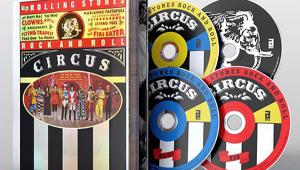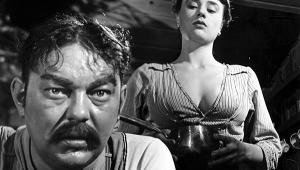CD Review Roundup: José González, Iron and Wine, Devendra Banhart

| |
| |
|
As if part of a vague mass conspiracy, three high-profile (for the indie world) idiosyncratic singer/songwriters issue their new albums on the same day. "Sounds like Nick Drake" has become such an over- and ill-used record-company-bio cliché that, at this point, most reviewers brace themselves for sleepy, lo-fi acoustic meanderings with precious, whispered vocals and impenetrable, lazy lyrics. These three folk singers do all of this, with varying degrees of success.
José González is the most directly affecting. Initially, he seems a bit unambitious, especially as the winner of a Swedish Grammy for Best Newcomer and the Swedish Government's Music Export Award. For the follow-up to his 2003 debut, Veneer, González continues to mill around the same chord structures, with vocals that rise little for the occasion.
The effect, however, is mesmerizing. His lyrics are terse, bleak observations that settle into mild grooves, serving as afterthoughts - not nearly as important as the overall hypnotic spell that enhances the album's simple but dark, claustrophobic production. The voice is given ambience and double-tracking to blur the impact. No lyric sheet is necessary to understand the bucolic beauty of "How Low"; simply trace the gorgeous melody. The melodic charms of "Killing for Love" and the title track are more seductive than their standard-issue Make Love/Not War sentiments. It's the singer not the song here, folks.
Sam Beam, a.k.a. Iron and Wine, works similarly. His previous album, 2004's Our Endless Numbered Days, was a folkie tour de force, jammed with powerfully precise tunes that matched Beam's warm, soothing croon with elemental acoustic-guitar riffs that sounded as if he'd internalized the entire Simon and Garfunkel canon.
For The Shepherd's Dog, Beam has altered course. The arrangements get fussier, and his voice and exquisite harmonies hide in the shadows. He has brought a carnival of sounds to most tracks. "Pagan Angel and a Borrowed Car" breaks out like a junkyard jalopy, threatening to fall apart before it hits the chorus. "Innocent Bones" adds intrusive percussion that throws off the instrumental balance. "The Devil Never Sleeps" features overbearing barrelhouse piano. These extra arrangements aren't necessary. The album's heart-stopping cut is "Resurrection Fern," dialed down to acoustic guitar and pedal steel. Running a close second is "Flightless Bird, American Mouth," with harmonies that raise the tune heavenward.
On the other hand, Devendra Banhart needs all the help he can get. The deliberately weird Pied Piper of the "Freak Folk" movement is so consumed with first-thought/only-thought that his music quickly dissolves into a series of annoying quirks, over-affected vocals, silly lyrics, and banal genre exercises, wrapped in a loose production that sounds like a jam session with reverb. The songs simply do not hold up.
On Smokey Rolls Down Thunder Canyon, "Cristobal" begins things with a South American folk song that sounds like Jim Morrison wandered over drunk during sessions for the Doors' The Soft Parade. "So Long Old Bean" isn't funny as a parody of a nightclub singer, never mind taken seriously. "Saved" is poor man's gospel, complete with an obnoxiously shrill choir. "Carmensita" and "The Other Woman" are horrifyingly bad reggae numbers. In interviews, Banhart has always come across as sincere, but an uninformed listener couldn't be blamed for thinking that, here, he's deliberately insulting the music. Banhart would like to be the jack of all musical genres; so far, he has only succeeded at being the master of none.
more Entertainment reviews Back to Homepage What's New on S&V
- Log in or register to post comments



























































